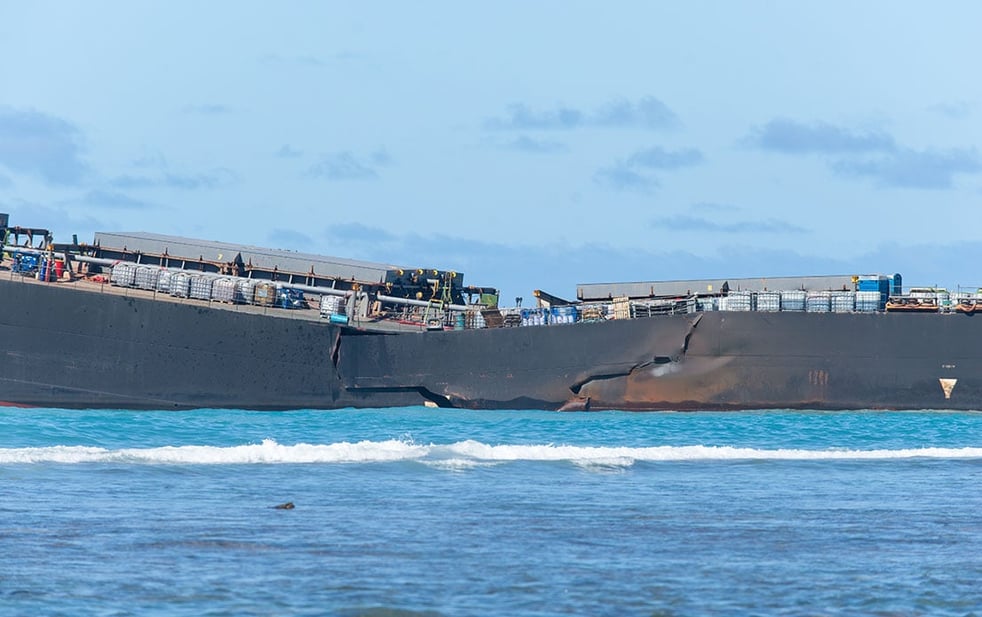One does not usually think a charterer will have a role in any casualty. However, it is in everyone's interest during a casualty to work together to minimise losses. To this end, charterers may need to provide logistical support to assist with discharging distressed cargo, lightening a vessel, and arranging transhipment. When dealing with the 2007 HEBEI SPIRIT, substantial oil pollution incident off South Korea on behalf of owners, the team at Skuld were grateful to the charterers of the HEBEI SPIRIT whose cooperation and logistical support assisted in minimising the overall exposure.
Indeed, there are circumstances in which charterer's liability could be in play. For example, if the port is unsafe, if cargo stowage was poor, or cargo was dangerous and that caused the casualty. In these circumstances, charterers will have an interest in investigating the cause of the casualty and preserving evidence. In some countries, e.g. Australia, a charterer can be held jointly liable together with the owners where there is substantial pollution. In other cases, the charterers may be held liable for cleaning or removing cargo that has been spilled or lost. Readers will be familiar with the substantial pollution incident off the coast of Brittany in 1999 when the ERIKA broke in two spilling 20,000 tonnes of crude oil, and where the charterers of the vessel were found liable in the French courts for the pollution damage.
Insurance
Skuld's Charterers Liability Insurance will cover liability for pollution from the vessel and the cost of measures reasonably taken for the purpose of preventing or minimising pollution up to the limit of the P&I policy. This will include costs incurred to comply with orders of any public authority.
Lessons learned when pollution is involved
It is in everyone's interest to adopt a collaborative attitude when seeking to minimise loss. Charterers should, subject to having received legal advice, provide reasonable logistical support when requested, as charterers may ultimately be called upon to respond to or face liability. Governments around the globe may be looking at others than the owners when establishing liability and one of those others may be the charterer. Charterers and traders active in oil trade will no doubt already have their Emergency Response Plan in place and will actively review them each year, considering relevant legal environmental developments, media response and new emerging risks such as pandemics and how that impacts their response. Charterers may well need to add to their prevention planning sections dedicated to due diligence on ports. A charterer relying on a due diligence warranty on safe port will need to be able to prove that they have in fact exercised due diligence and are alive to present risks of the port and that their research must be current. Towards terminals and public authorities, charterers will also need to show that the ships they charter are in good condition and well maintained. Charterers need to ensure they have excellent quality insurance. Skuld's team of experts are ready to assist with loss prevention and dealing with large pollution claims. If a casualty with potential liabilities for the charterer occurs, a dedicated Casualty Response Team will come together in accordance with our Casualty Response Plan, combining the knowledge of the business unit which the assured is familiar with the expertise of Skuld's specialist Casualty and Major Claims team. Skuld have been involved with some of the most significant pollution incidents such as the BRAER, SEA EMPRESS, and HEBEI SPIRIT.
Liability to Owners for unsafe port
In substantial casualties, the issue of safe port will arise. Over the last 20 years we have seen a steady increase in the number and size of unsafe port claims. In 2020, the US Supreme Court issued its ruling on the ATHOS 1. In 2004, the ATHOS 1 struck a submerged anchor, puncturing the vessel's hull, while approaching berth in the Delaware River. Approximately 265,000 gallons of oil spilled from the vessel. Response costs of $180 million were incurred. The owner sued the voyage charterer, alleging breach of the safe berth warranty. The Court found the charterers liable.
Readers will recall the OCEAN VICTORY which grounded and became a total loss in seas in Kashima Japan in 2006. Owners pursued charterers for an indemnity and damages in the region of USD130 million for breach of safe port warranty. The matter went to the Supreme Court in England where the court found the port to be safe. When dealing with the OCEAN VICTORY on behalf of charterers, who were the in the middle of the charter party chain, Skuld sent personnel on site to investigate the cause of the incident and gather evidence on the port and its routines. Acting for another charterer where the vessel caused destruction and damage with claims over USD 80 million being lodged against charterers, Skuld's appointed investigator was able to retrieve vital evidence which was crucial in the amicable resolution of the case in charterers' favour.
Insurance
Skuld Charterers liability cover will cover damage to or loss of the vessel. In the OCEAN VICTORY case referred to earlier, the liability covered would have been, had the port been found to be unsafe, the loss of the vessel, salvage costs, pollution clean-up costs, cargo loss and loss of hire.
Unsafe port claims are large in nature, very costly, and take years to resolve. Preserving evidence and ascertaining the facts quickly are therefore essential in protecting charterers interests and assisting them in any recourse claim they may have. When considering charter parties subject to American law and jurisdiction, charterers and traders are advised to use qualifying language around the safe port warranty such as the exercise of due diligence.
Skuld has observed recently that the losses claimed by owners in unsafe port claims often far exceed USD 50 million. Having the right level of insurance, therefore is key to ensuring adequate protection.
